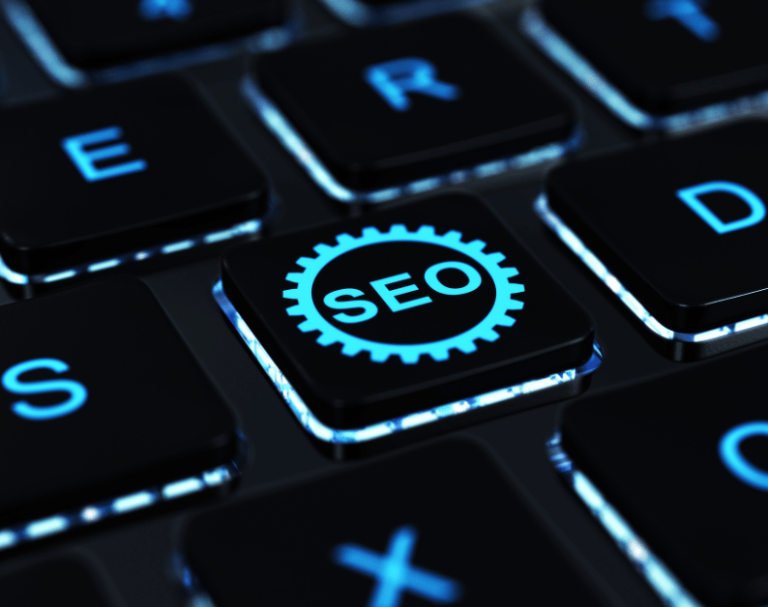Table of Contents
How to Cope with Job Threats from AI in the age of technological transformation, the rise of artificial intelligence (AI) has stirred both excitement and anxiety. AI has the potential to revolutionize industries, simplify processes, and introduce new ways of working. However, it has also introduced a pressing concern for many workers: the threat of job displacement. The question on many minds today is: how do we cope with the looming fear of job automation?
For those who are wondering about the future of their careers in a world increasingly dominated by AI, this article delves into practical strategies for coping with AI job threats. The key lies not in resistance but in adaptation and forward-thinking. Let’s explore how you can harness the tools of tomorrow to secure your place in an AI-driven world.

Understanding the AI Job Threat
The narrative surrounding AI often hinges on the idea of robots replacing humans. The reality, however, is more nuanced. While AI is capable of automating certain tasks—especially those that are repetitive, data-intensive, or rule-based—it still struggles with complex tasks that require emotional intelligence, creativity, and judgment.
Many industries are indeed at risk, particularly those in fields such as manufacturing, data entry, and customer service. But even in these areas, AI is not always replacing jobs outright. More often, AI is augmenting human labor, making some tasks more efficient while creating new roles for people who can manage and collaborate with AI systems.
In understanding coping with AI job threats, it’s essential to look beyond fear and recognize that the AI wave doesn’t mean the end of work—it simply means a shift. To stay ahead, workers must be willing to adapt, learn new skills, and take proactive steps toward career growth.
Adapting to the AI Evolution
1. Reskill and Upskill: A Commitment to Lifelong Learning
AI’s encroachment on certain jobs underscores a vital truth: skills must evolve with the technology. This is where reskilling and upskilling become paramount.
Reskilling refers to the process of learning new skills in an entirely different field or industry, while upskilling means improving or deepening your existing skill set. For example, a customer service representative may choose to learn about AI-driven chatbots and customer interaction technologies to adapt to the growing trend of automated service solutions.
Both types of learning are vital for coping with AI job threats, particularly as technology evolves faster than ever. By continually expanding your knowledge, you not only future-proof your career but also make yourself an indispensable asset in the workforce.
2. Embrace AI as a Tool, Not a Rival
One of the most effective ways to deal with coping with AI job threats is to understand that AI can be a tool rather than a competitor. This shift in mindset can transform the perception of AI from a disruptive force into a collaborator.
For instance, in the field of marketing, AI can assist in data analysis, consumer behavior predictions, and content optimization. Marketers can focus on creative strategies, brand building, and relationship management while letting AI handle the repetitive tasks. The key is to become adept at working alongside AI, using it to enhance human capabilities rather than viewing it as a threat.
Taking this approach requires a willingness to learn how to interact with AI systems, understand their capabilities, and integrate them into your workflows. In doing so, you increase your value as an employee and improve your ability to thrive in an AI-enhanced world.
3. Focus on Human Skills
While AI can perform many tasks, there are certain inherently human qualities that AI cannot replicate—at least not yet. These skills will be highly valued in the future workforce. The critical human skills include:
- Creativity: The ability to think outside the box, innovate, and create original solutions is something AI cannot mimic. Writers, artists, designers, and inventors who push boundaries will always have a role to play.
- Emotional Intelligence: Roles that require empathy, understanding, and personal connection—such as those in healthcare, counseling, and customer service—will remain largely human-centric.
- Critical Thinking and Problem-Solving: AI is fantastic at pattern recognition and data processing, but it cannot match human intuition and judgment. As technology continues to advance, critical thinkers will be needed to make decisions that require deep understanding, ethics, and context.
- Leadership and Communication: As organizations shift to more AI-driven models, leaders who can inspire and guide teams, foster collaboration, and communicate effectively will be in high demand.
Focusing on developing these irreplaceable qualities is key to coping with AI job threats and staying relevant in any industry.
The Role of AI in Creating New Job Opportunities
While AI has the potential to disrupt traditional roles, it also creates opportunities for entirely new professions. The advent of AI opens up new avenues in sectors such as robotics, data science, and cybersecurity. Emerging roles include:
- AI Trainers and Educators: As AI systems become more sophisticated, the demand for professionals who can teach machines how to think and learn increases. These roles involve curating datasets, identifying biases, and ensuring that AI systems function effectively.
- AI Ethicists and Policy Makers: With AI comes the need for ethical guidelines and regulations to ensure that technology is used responsibly. Ethical decision-making in AI requires expertise in both technology and philosophy, making these roles highly valuable.
- Human-AI Interaction Specialists: These professionals focus on how humans and AI can work together efficiently. They might design interfaces that make it easier for non-technical users to interact with AI or ensure that AI is seamlessly integrated into existing workflows.
- AI Software Engineers: As AI technologies become more ingrained in various industries, there’s a growing demand for software engineers who specialize in AI applications, deep learning models, and the infrastructure needed to support them.
Rather than focusing solely on the jobs that AI may replace, it’s essential to explore the ways in which AI is creating new opportunities. The key to coping with AI job threats lies in recognizing these new career paths and pursuing them proactively.
Developing a Future-Proof Career Path
1. Diversify Your Skills
AI is a vast and multifaceted field. While certain roles may become automated, others are emerging at a rapid pace. It’s crucial to diversify your skill set so you can pivot as new opportunities arise. By blending technical expertise with creative and strategic thinking, you can increase your versatility and adaptability.
For example, gaining proficiency in both AI programming and marketing can open doors to roles in AI-powered marketing automation. Similarly, learning AI-driven data analytics combined with business management can lead to careers in data-driven decision-making.
Diversity in your skill set not only makes you resilient to coping with AI job threats but also allows you to explore a wide range of job opportunities that align with your interests and strengths.
2. Build a Personal Brand
As the job market evolves, personal branding has never been more important. Professionals who can establish a unique voice and demonstrate thought leadership in their fields will stand out in an increasingly competitive market.
Start by becoming an expert in an AI-related domain—whether through blogging, speaking engagements, online courses, or certifications. Engage with AI communities online, share your expertise, and build a reputation as someone who understands the intricacies of AI and how to apply it effectively.
By building a personal brand, you position yourself as a thought leader who brings unique value to employers—one who understands not just the potential of AI but also its limitations and ethical considerations.
3. Network with Industry Professionals
Networking is essential in any career, but in the age of AI, it is especially important. By attending AI-related conferences, webinars, and workshops, you can keep your finger on the pulse of industry developments. Networking allows you to stay informed about new job opportunities and trends that may not yet be on the mainstream radar.
Moreover, building relationships with others in the AI space can help you stay ahead of the curve and ensure that you are well-placed to adapt as AI continues to reshape the landscape.
The Role of Government and Policy in Addressing AI Job Threats
Governments also have a role to play in coping with AI job threats. Policies that encourage education and reskilling, as well as provide financial support for individuals transitioning between careers, are critical to managing the shift. Public investment in AI research, innovation, and workforce development will be essential for ensuring that the benefits of AI are equitably distributed across society.
As the workforce adjusts to the AI era, governments will need to adopt policies that focus on ensuring that workers aren’t left behind. This might include:
- Universal Basic Income (UBI): As automation leads to job displacement, UBI could provide a safety net for those struggling to find new work.
- Tax Incentives for AI Learning: Offering incentives to individuals and organizations that invest in AI-related education and training could help boost the workforce’s readiness for the future.
- Public-Private Partnerships: Collaboration between governments, tech companies, and educational institutions can lead to the development of programs that prepare workers for the AI economy.
Turning Threats into Opportunities
The rise of AI undoubtedly presents challenges, but it also brings opportunities for growth, innovation, and self-improvement. Rather than fearing the changes AI will bring, professionals should embrace them with an open mind and a proactive approach. Whether it’s through reskilling, embracing new technologies, or developing in-demand human skills, the key to coping with AI job threats lies in adaptability, creativity, and forward-thinking.
AI is here to stay. Instead of seeing it as a threat, think of it as a powerful tool that, when harnessed correctly, can help you achieve new heights in your career. The future is bright for those who are willing to learn, grow, and evolve in response to the exciting new landscape that AI is creating.







